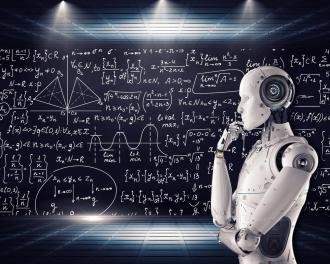When the ride-hailing company Uber sought to establish a new facility in Pittsburgh in 2015 focused on self-driving cars, it looked to the researchers and scientists at the nearby Carnegie Mellon University robotics center. Soon after, the company lured away 40 of the center’s employees, including the director, with doubled salaries and bonuses in the hundreds of thousands.
High-profile stories like these have contributed to a prevailing narrative that artificial intelligence experts leave academe for industry in droves. But the dearth of AI professors at U.S. universities is not the result of a distorted job market, according to a report issued this month from the Center for Security and Emerging Technology. Rather, AI experts remain interested in academic careers, but university hiring of AI faculty has not kept pace with student demand. Though big tech has stepped in to fill some of the gap, some experts urge caution given that the industry’s incentive structure differs from that of academe.
Historically, academe has delivered a steady stream of developers, engineers and entrepreneurs that has fueled an AI innovation ecosystem. This stream has been directly correlated with AI faculty teaching capacity. But while student enrollment in computer science programs has skyrocketed in the past decade, universities have not hired enough computer science faculty to meet that demand. (The researchers used student demand for computer science as a proxy for student demand in AI, as the latter is difficult to quantify.)
In an apparent response to increased student demand, universities have restricted access to AI programs by limiting enrollment in high-demand classes, reducing the number of small-enrollment classes and tightening computer science admission requirements, according to Jack Corrigan, one of the report’s authors. At the same time, burgeoning numbers of computer science Ph.D. recipients have expressed interest in academic careers, but universities have not responded with a commensurate increase in faculty positions. Contrary to the prevailing narrative that industry poaching of computer science faculty is rampant, universities generally succeed when they seek to hire AI faculty.
Continue reading: https://www.insidehighered.com/news/2022/07/11/why-does-ai-faculty-shortage-exist-its-complicated
High-profile stories like these have contributed to a prevailing narrative that artificial intelligence experts leave academe for industry in droves. But the dearth of AI professors at U.S. universities is not the result of a distorted job market, according to a report issued this month from the Center for Security and Emerging Technology. Rather, AI experts remain interested in academic careers, but university hiring of AI faculty has not kept pace with student demand. Though big tech has stepped in to fill some of the gap, some experts urge caution given that the industry’s incentive structure differs from that of academe.
Historically, academe has delivered a steady stream of developers, engineers and entrepreneurs that has fueled an AI innovation ecosystem. This stream has been directly correlated with AI faculty teaching capacity. But while student enrollment in computer science programs has skyrocketed in the past decade, universities have not hired enough computer science faculty to meet that demand. (The researchers used student demand for computer science as a proxy for student demand in AI, as the latter is difficult to quantify.)
In an apparent response to increased student demand, universities have restricted access to AI programs by limiting enrollment in high-demand classes, reducing the number of small-enrollment classes and tightening computer science admission requirements, according to Jack Corrigan, one of the report’s authors. At the same time, burgeoning numbers of computer science Ph.D. recipients have expressed interest in academic careers, but universities have not responded with a commensurate increase in faculty positions. Contrary to the prevailing narrative that industry poaching of computer science faculty is rampant, universities generally succeed when they seek to hire AI faculty.
Continue reading: https://www.insidehighered.com/news/2022/07/11/why-does-ai-faculty-shortage-exist-its-complicated

